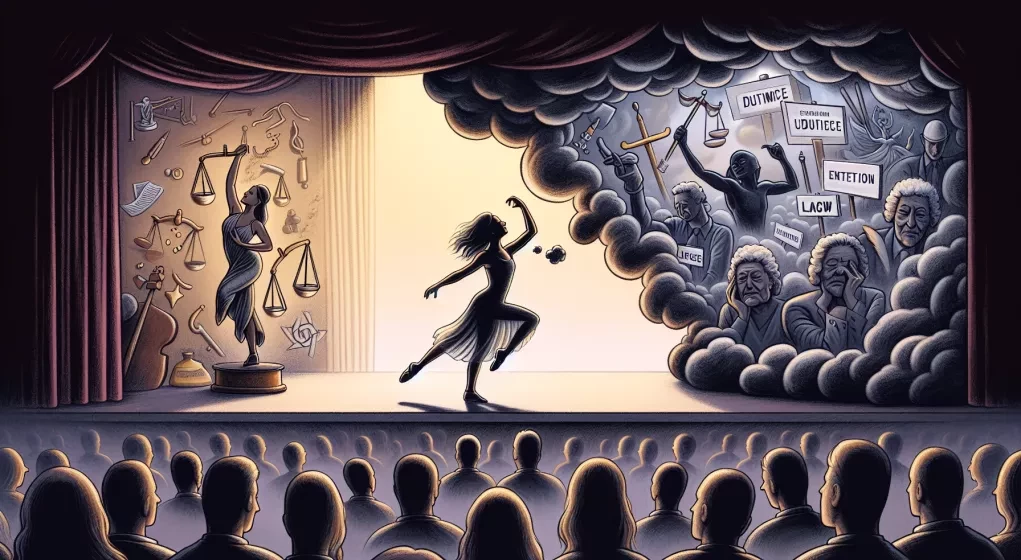In the glittering twilight of London’s nightlife, a former dancer from the famed Playboy Club Casino—a temple to sophistication and indulgence—found herself weaving between tables and patrons, one of whom would chart a different course for her future. This patron, a frequent visitor to these hedonistic halls, was a male lawyer, his eyes not just on the spectacle but also scouting for talent beyond the dance floor. Charmed by her poise and grace, he saw in her the makings of a legal secretary; an offer was extended, and the dancer, harboring academic dreams in Law, saw an opportunity to pirouette from performance to the legal profession.
The stage was set: a London boutique disputes law firm, Eldwick Law, prestigious and polished, dealing with clientele whose pockets were as deep as their affairs were intricate. The lawyer, known in tribunal documents simply as “AD,” consulted there, and the dancer, who in this act shall be called “BR,” was poised to take on the role of his personal secretary. For BR, this was a chance to shine under a new spotlight, to merge her nightclub savvy with legal ambitions. AD painted a captivating picture: a base salary, a share in revenue, plus the promise of mingling with the elite, all laid out like a red carpet awaiting her arrival.
But the script took a dark turn. What appeared as prospect rapidly unravelled into something far more sinister. AD, wielding his power like a sceptre, declared himself “God,” and BR, via a WhatsApp message that would later echo through the halls of justice, an “obedient little slave creature.” Employment Judge Anne Martin labeled the events that unfolded as “extraordinary,” a disturbing recital of power and exploitation.
The grand entrance BR envisioned, walking into Eldwick’s office, never came to pass. Instead, a call from AD rerouted her course to his house, marking the start of an apprenticeship that was never grounded in the law but instead mired in deceit and manipulation. BR never stepped inside Eldwick, never mingled with its employees, nor did she grasp a tangible contract.
Despite the absence of a formal agreement, BR, eager and “rather naïve,” labored faithfully, yet reaped none of the financial rewards. Here was a student of the law caught in the web of one who knew its letter but defied its spirit, and in doing so, breached contracts, neglected legal duties, and ultimately stood guilty of sexual harassment and victimization.
As the charade crumbled, the true face of the patron-lawyer emerged. After an ill-fated encounter in which AD assaulted BR and her young child within the supposed sanctuary of her own home, the veneer of civility finally shattered, prompting his arrest by police.
In the sober light of the tribunal, the dancer-turned-secretary was vindicated. The judge, presiding over this narrative of misuse and mistreatment, awarded BR £18,000 for the injury to her feelings, nearly £5,000 in unpaid wages, and an additional £5,000 as interest—a mere monetary bandage over a deep, personal affront.
As the curtain falls on this cautionary tale, let it serve as a stark reminder that not all that glitters in the glitzy night is gold, and that wolves in refined clothing can lurk even under the warm glow of chandeliers.






